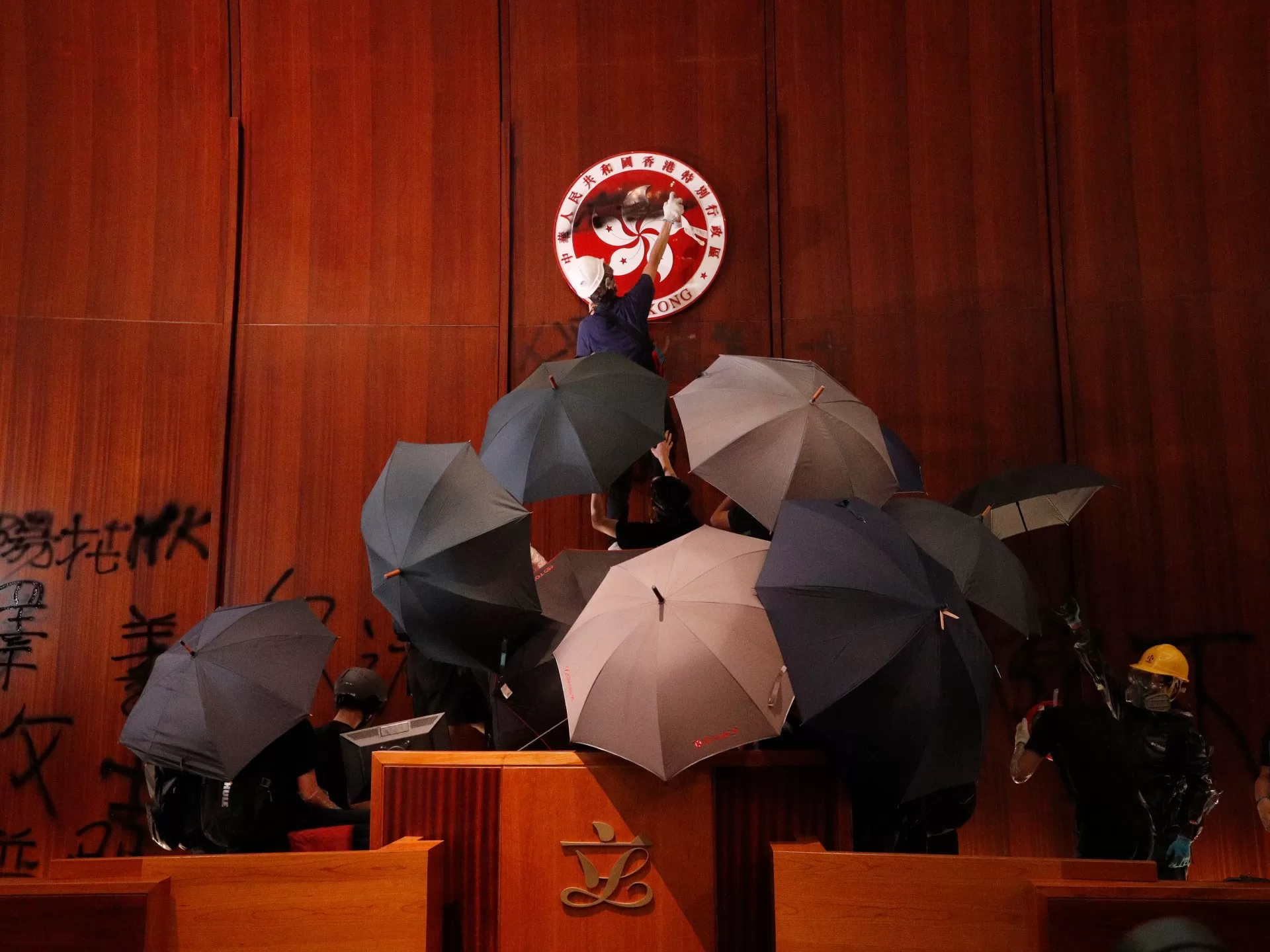The storming of the building marked an escalation in the 2019 mass protests that began over a China extradition bill.
Hundreds of protesters stormed the building on July 1, 2019, after a massive protest march against a proposed extradition bill that would have allowed authorities to send individuals to mainland China for trial.
After forcing their way inside, they ripped portraits of officials from walls and spray-painted slogans calling for the release of arrested demonstrators. An old colonial-era flag was draped over the speaker’s chair and a plaque bearing the symbol of Hong Kong was blacked out with spray paint.
On Thursday, District Court Judge Li Chi-ho found Ho Chun-yin, actor Gregory Wong, Ng Chi-yung and Lam Kam-kwan guilty of rioting.
Student journalist Wong Ka-ho and Ma Kai-chung, a reporter with Passion Times, who were on trial alongside the four, were acquitted of the rioting charge but found guilty of unlawful entry.
During the trial, Gregory Wong told the court he had entered the building solely to deliver two chargers to reporters who were covering the break-in by protesters.
Video evidence played by the prosecution showed Wong left the chamber immediately after delivering the chargers to a reporter in a yellow vest.
Another defendant, Lam Kam-kwan, told the court he was detained in China a month after the storming of Legco and forced to write a repentance letter.
Police officers denied his claims during a cross-examination by the defence.
Last May, seven others including the former president of the University of Hong Kong’s student union, Althea Suen, and pro-democracy activists Ventus Lau and Owen Chow, pleaded guilty to rioting and will deliver their mitigation statements later on Thursday.
They face a maximum of seven years in prison.
While the government eventually withdrew the extradition bill, the protests, which drew more than a million people onto the streets, had already gathered momentum and the demands had widened to include direct elections for the city’s leaders and police accountability.
The protests were the biggest challenge to the Hong Kong government since the city’s return to Chinese rule in 1997 and led Beijing to impose a sweeping national security law in 2020 that has seen many of the city’s leading opposition politicians and activists arrested, silenced or in exile.
More than 10,200 people were arrested in connection to the protests for various crimes, such as rioting and participating in an unauthorised assembly.
